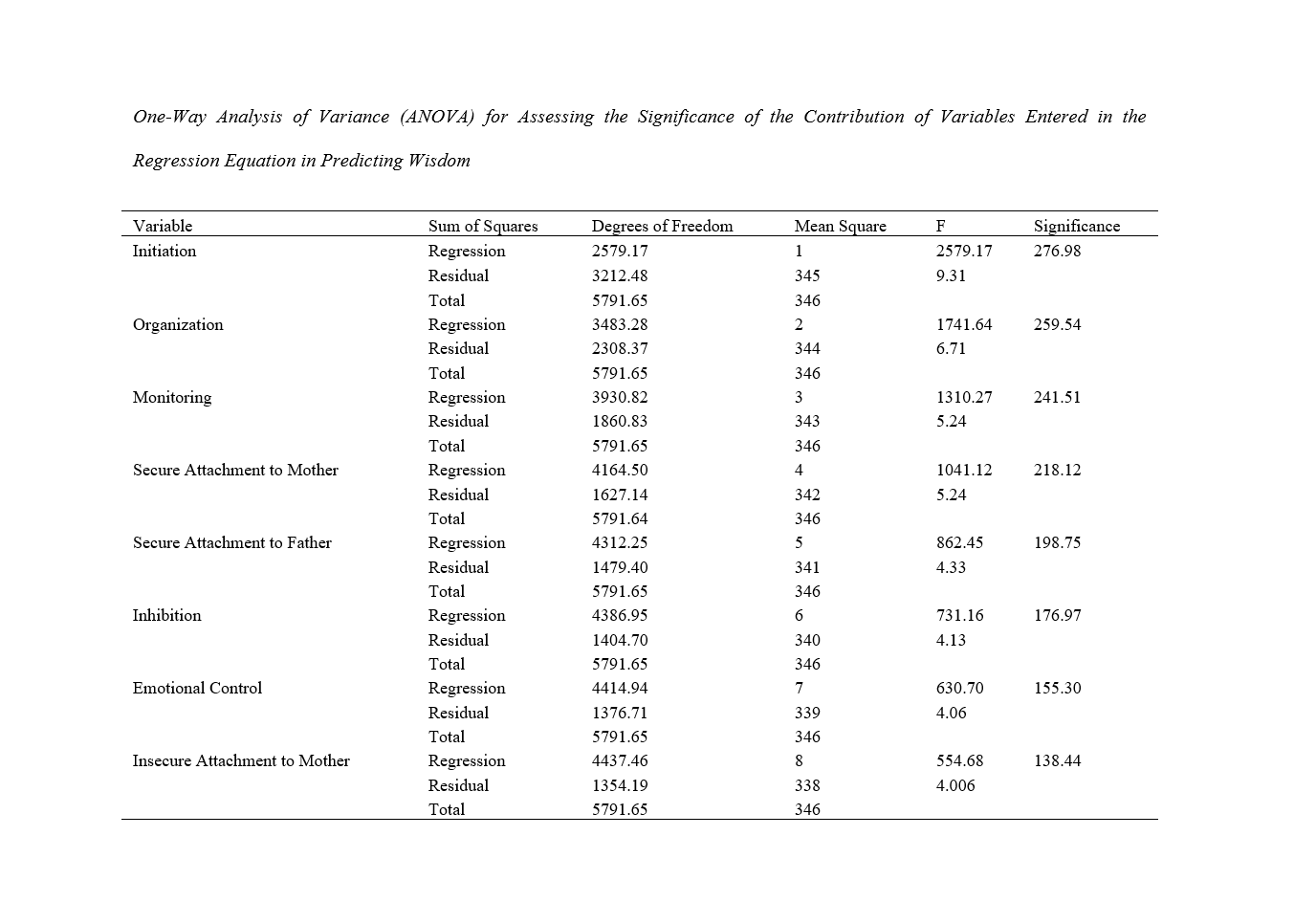Prediction of Wisdom Based on Executive Function, Attachment Style, and Personality Traits
Keywords:
Wisdom, Executive Function, Attachment Style, PersonalityAbstract
Objective: The current research aimed to predict wisdom based on executive function, attachment style, and personality traits.
Methods and Materials: This was a descriptive and correlational study. The study population consisted of all students at Wasit University in Iraq. The sample comprised 350 students selected based on inclusion and exclusion criteria. The research tools included the Ardelt Wisdom Scale (2003), Executive Function (Yousefi & Golkar, 2020), Personality (Costa et al., 1998), and Parental Attachment Style (Armsden & Greenberg, 2000). The collected data were analyzed using stepwise regression.
Findings: The results of the analysis indicated that all dimensions of executive function were positively and significantly related to wisdom. All personality traits, except for extraversion, showed a positive and significant relationship with wisdom (p = .0051). All dimensions of attachment were significantly related to wisdom, with secure attachment to parents being positively significant (p = .000) and insecure attachment to parents being negatively significant (p = .000). Neuroticism, insecure attachment with parents, and increased hours spent in the virtual environment were negatively and significantly related to wisdom, while the remaining variables had a positive and significant relationship. Stepwise regression results showed that among the variables studied, initiation, organization, monitoring, secure attachment to mother, secure attachment to father, inhibition, emotional control, and insecure attachment to father had predictive power for wisdom.
Conclusion: Based on these results, it can be concluded that changes in these variables are associated with changes in wisdom among students.
Downloads

Downloads
Additional Files
Published
Issue
Section
License
Copyright (c) 2024 Alaa Sabah Mohammed Alnuaimi, Zahra Yousefi, Ali Enad Zamil Aayedi, Mohsen Golparvar (Author)

This work is licensed under a Creative Commons Attribution-NonCommercial 4.0 International License.








